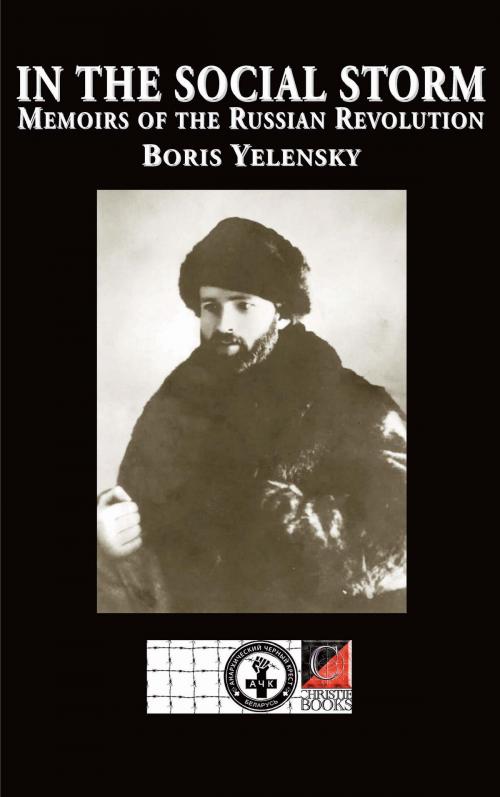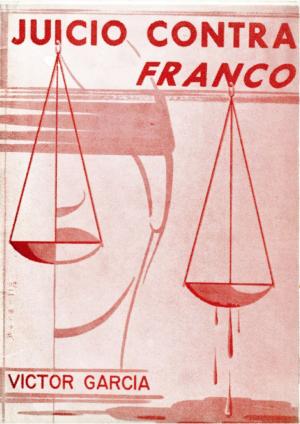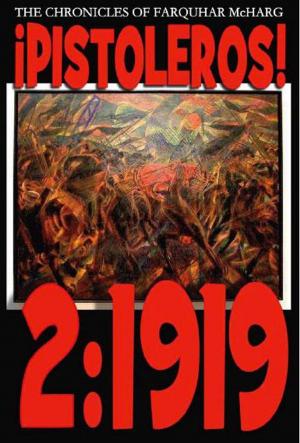IN THE SOCIAL STORM
Memoirs of the Russian Revolution
Nonfiction, History, Revolutionary, Biography & Memoir, Political, Historical| Author: | Boris Yelensky | ISBN: | 1230001526226 |
| Publisher: | ChristieBooks | Publication: | January 29, 2017 |
| Imprint: | ChristieBooks | Language: | English |
| Author: | Boris Yelensky |
| ISBN: | 1230001526226 |
| Publisher: | ChristieBooks |
| Publication: | January 29, 2017 |
| Imprint: | ChristieBooks |
| Language: | English |
Boris Yelensky’s memoir charts the history of the Russian anarchist movement in the early years of the 20th Century. Told in prosaic yet detailed fashion, unadorned by romanticism, it is his personal account of the turbulent period leading up to — and after — the successful take-over of the Russian monarchy by Lenin and the Bolsheviks. He provides an alternative historical viewpoint as to the Russian anarchist experience of that momentous period.
In the Social Storm: Memoirs of the Russian Revolution is not only a critique of the Bolshevik modus operandi and why they willingly sacrificed the one great opportunity to implement the socialist ideals fleshed out over the previous half century or more. It is more than an analysis of the Bolshevik mindset. Yelensky illustrates how the anarchist movement and men such as Nestor Makhno played a vital role in the social forces and the massive political and social upheaval of the period.
Yelensky (Russia, 1889 — USA, 1974) describes how the anarchists living and struggling within this maelstrom of change did their utmost to implement their ideas through the example of their everyday lives. The experiments in actual anarchist projects of which Yelensky was a part, and which he describes in detail, were attempts to redefine social organizations to make them fair and liberating to everyone involved. They had a short window of opportunity to show the positive aspects of their philosophy, one that promised a viable alternative social and industrial organization to the repressive, totalitarian, brutal state dictatorship of the Bolsheviks — and to that of the capitalists who, likewise, used a centralized authoritarian government system disguised as “democracy” to fulfill similar ends.
For anarchists and political researchers Yelensky’s book is a revealing account of anarchism in action. A first-hand description of the lives and the efforts of those who went to Russia in good faith, believing positive changes were at hand. Instead, they faced the grim reality there was no new utopia awaiting them; Russia had fallen into the hands of a cabal of ruthless Marxist ideologues who, with their dreaded cheka terror squads, were hell-bent on acquiring total power over one of the largest empires on earth — and, in the process, murdering anyone who stood in the way of their ambitions.
Boris Yelensky’s memoir charts the history of the Russian anarchist movement in the early years of the 20th Century. Told in prosaic yet detailed fashion, unadorned by romanticism, it is his personal account of the turbulent period leading up to — and after — the successful take-over of the Russian monarchy by Lenin and the Bolsheviks. He provides an alternative historical viewpoint as to the Russian anarchist experience of that momentous period.
In the Social Storm: Memoirs of the Russian Revolution is not only a critique of the Bolshevik modus operandi and why they willingly sacrificed the one great opportunity to implement the socialist ideals fleshed out over the previous half century or more. It is more than an analysis of the Bolshevik mindset. Yelensky illustrates how the anarchist movement and men such as Nestor Makhno played a vital role in the social forces and the massive political and social upheaval of the period.
Yelensky (Russia, 1889 — USA, 1974) describes how the anarchists living and struggling within this maelstrom of change did their utmost to implement their ideas through the example of their everyday lives. The experiments in actual anarchist projects of which Yelensky was a part, and which he describes in detail, were attempts to redefine social organizations to make them fair and liberating to everyone involved. They had a short window of opportunity to show the positive aspects of their philosophy, one that promised a viable alternative social and industrial organization to the repressive, totalitarian, brutal state dictatorship of the Bolsheviks — and to that of the capitalists who, likewise, used a centralized authoritarian government system disguised as “democracy” to fulfill similar ends.
For anarchists and political researchers Yelensky’s book is a revealing account of anarchism in action. A first-hand description of the lives and the efforts of those who went to Russia in good faith, believing positive changes were at hand. Instead, they faced the grim reality there was no new utopia awaiting them; Russia had fallen into the hands of a cabal of ruthless Marxist ideologues who, with their dreaded cheka terror squads, were hell-bent on acquiring total power over one of the largest empires on earth — and, in the process, murdering anyone who stood in the way of their ambitions.















